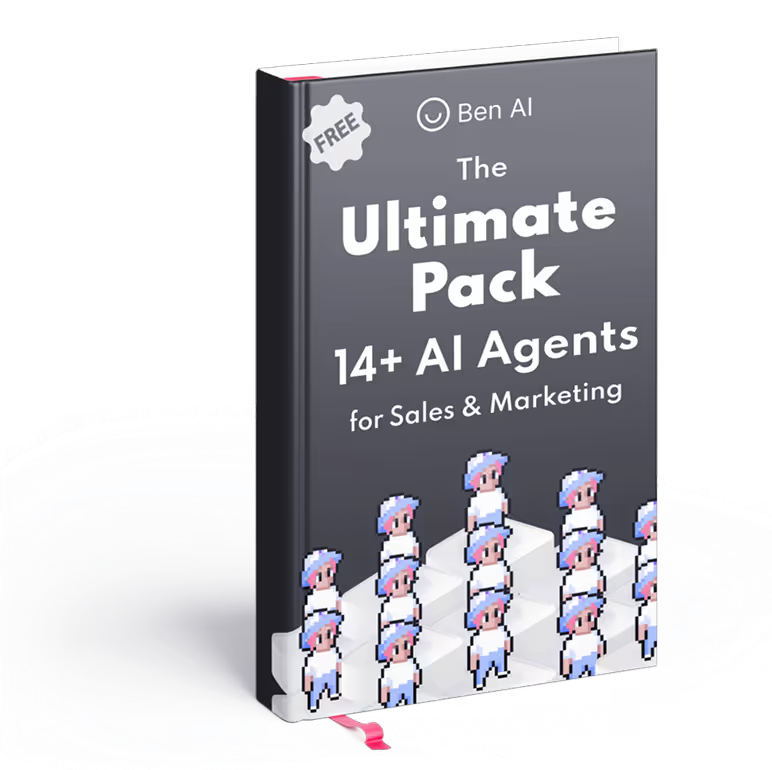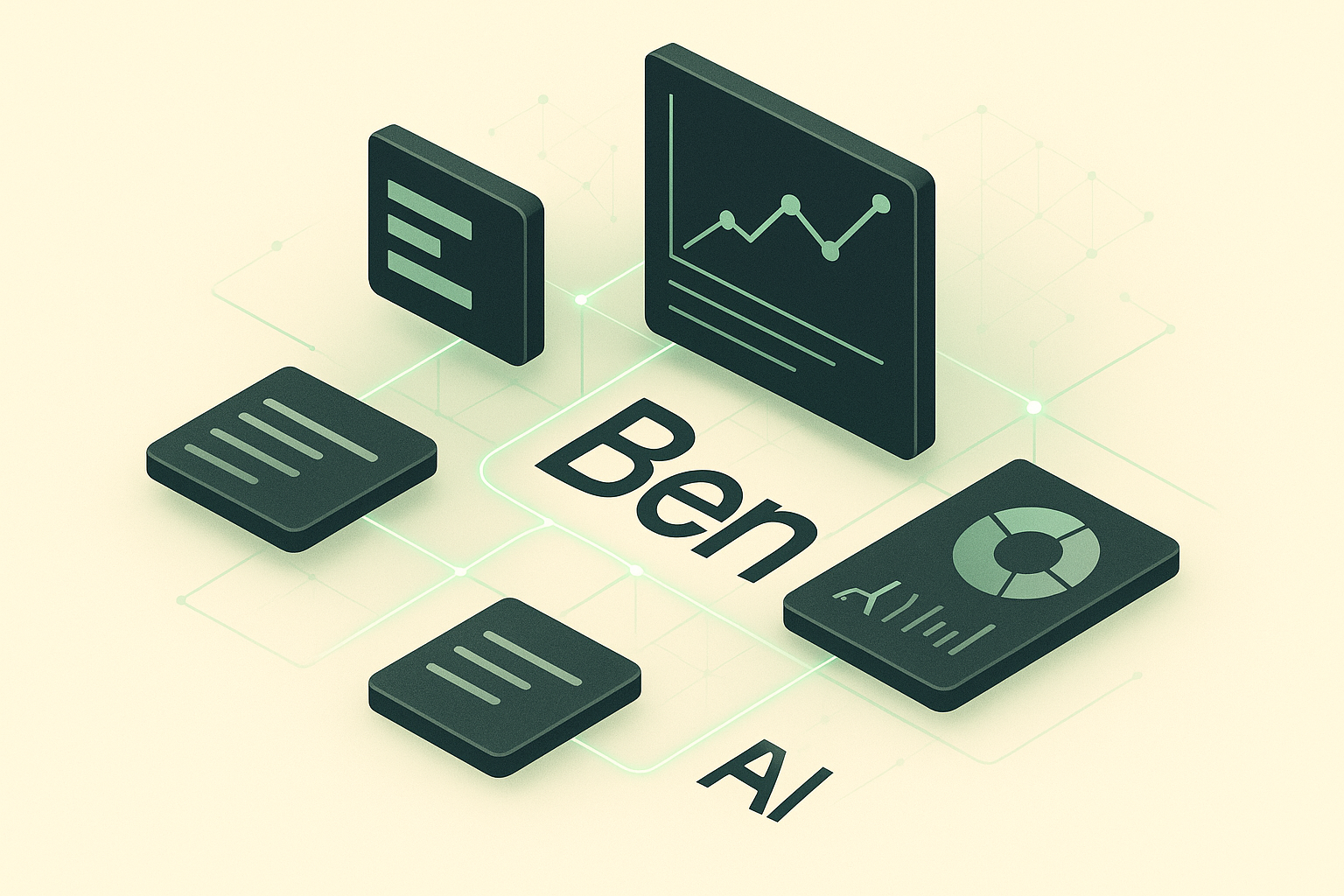Empowering Agencies: Automating AI-First SEO Reporting and Client Dashboards for Unrivaled Visibility
Intro: The New Imperative: Transforming SEO Reporting in the Age of Generative AI
The digital landscape has undergone a seismic shift, rendering traditional SEO reporting methodologies increasingly obsolete. As search engines evolve with generative AI, the focus moves beyond mere clicks and rankings to broader concepts of AI visibility and topical authority. Marketing agencies and businesses are now confronting a critical challenge: delivering real-time, actionable insights to clients amidst the complexities of an AI-first search environment. BenAI emerges as the essential solution, providing automated, intelligent systems to generate customized SEO reports and client dashboards that not only reflect current performance but also predict future trends, ensuring unparalleled transparency and scalability in client communication. This transformation is not optional; it is the new standard for demonstrating true SEO value in an AI-dominated world.
The New Era of AI-Driven SEO Reporting: Why Automation is Essential
The rapid integration of Artificial Intelligence (AI) into search engines has fundamentally reshaped how SEO success is measured, making automated, AI-driven reporting not just an advantage, but a necessity. The digital landscape has profoundly transformed, with agencies now requiring dynamic, real-time insights to remain competitive and demonstrate tangible value in an AI-first search environment. Organizations using AI reached 78% in 2024, an increase from 55% in 2023, underscoring the widespread adoption and expectation of AI in SEO workflows (Stanford Research Institute, 2025 AI Index Report [5]). AI-driven campaigns lead to up to a 45% increase in organic traffic and 38% in conversion rates, with 65% of businesses reporting improved SEO results with AI (SEOMator, 2024 [3]; SEOProfy, 2024 [2]). This shift mandates a move towards automated, intelligent systems capable of processing vast datasets, identifying nuanced trends, and generating comprehensive reports that align with the evolving mechanisms of search.
How Does Zero-Click Visibility Impact Your SEO Reports?
Zero-click visibility, predominantly driven by Google's AI Overviews, represents a significant paradigm shift where users find answers directly on the Search Engine Results Page (SERP) without visiting a website. This phenomenon drastically alters the conventional understanding of success metrics, especially click-through rates (CTR), as user engagement often concludes directly within the search interface. Google’s AI Overviews reduce clicks to websites by over 34%, and 60% of searches now complete without a click-through (SEOMator, 2024 [3]; Ahrefs, 2024 [7]). This highlights the measurable benefits of AI, yet also the challenge of communicating value when direct traffic decreases. BenAI integrates tracking for AI Overview presence and provides frameworks to re-educate clients on the value of brand exposure and informational authority, even without a direct click, transforming how "success" is defined in reports. Agencies can access comprehensive AI SEO solutions that provide deep insights into this evolving metric.
Why Are Traditional KPIs Insufficient for AI Search?
In the evolving landscape of AI search, traditional Key Performance Indicators (KPIs) such as organic traffic volume and direct keyword rankings, while still valuable, no longer capture the full spectrum of a content's influence or visibility. Google’s AI Overviews appear in 47% of Google search results and have over 1 billion users monthly (SEOMator, 2024 [3]; SEO.com, 2024 [4]). This pervasive integration of AI fundamentally changes how content is discovered and consumed, diminishing the singular focus on metrics derived from direct website visits. Large Language Models (LLMs) and AI Overviews prioritize a holistic understanding of topical authority and semantic relevance, moving beyond simple keyword matching. BenAI moves beyond these limitations by incorporating advanced AI-centric metrics that provide a more accurate and comprehensive view of performance, addressing the nuances of how LLMs and AI Overviews interact with content. Agencies must leverage an AI-powered content marketing strategy to truly adapt.
What Defines an AI-First Reporting Standard for Agencies?
An AI-first reporting standard for agencies is defined by its ability to provide dynamic, comprehensive insights that not only reflect performance in traditional search but also critically assess and optimize for generative AI environments. This standard moves beyond reactive data reporting, emphasizing proactive analysis and predictive capabilities. Key characteristics include:
- Real-time Insights: Access to fresh data reflecting the rapid shifts in AI search.
- AI-Centric Metrics: Tracking how LLMs interact with content, including citations and semantic alignment.
- Predictive Analytics: Forecasting future AI visibility and identifying emerging trends.
- Transparency: Clear methodologies for AI-generated insights, fostering client trust.
- Scalability: Automated systems that can handle increasing data volumes and client portfolios.
According to SEOProfy (2024 [2]), 65% of businesses report improved SEO results with AI, highlighting the measurable benefits of AI-driven strategies and validating the need for AI-first reporting. BenAI embodies this standard by offering features like multi-LLM citation tracking, semantic relevance scoring, and predictive analytics, enabling agencies to provide their clients with reports that are both forward-looking and deeply insightful, thereby enhancing their AI-powered content marketing strategy.
What Metrics Truly Matter? Unlocking Advanced AI-Powered Insights
Moving beyond the limitations of traditional SEO, BenAI introduces a suite of advanced, AI-powered metrics specifically designed to illuminate content performance within the generative AI landscape. The platform provides unprecedented visibility into how AI systems interact with and cite content, ensuring agencies can accurately measure and optimize for the intricate nuances of modern search. This involves analyzing entity relationships, semantic relevance, and consumption patterns by Large Language Models, offering a truly comprehensive understanding of content effectiveness in the AI era.
Join Our Growing AI Business Community
Get access to our AI Automations templates, 1:1 Tech support, 1:1 Solution Engineers, Step-by-step breakdowns and a community of forward-thinking business owners.

Latest Blogs
Explore our latest blog posts and insights.



